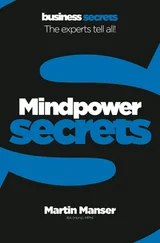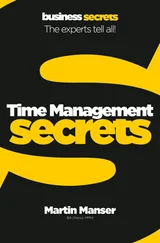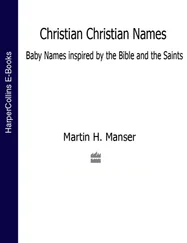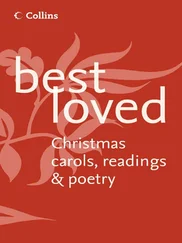All people that on earth do dwell,
Sing to the Lord with cheerful voice:
Him serve with fear, His praise forth tell;
Come ye before Him and rejoice.
The Lord, ye know, is God indeed;
Without our aid He did us make;
We are His flock, He doth us feed,
And for His sheep He doth us take.
O, enter then His gates with praise,
Approach with joy His courts unto;
Praise, laud, and bless His name always,
For it is seemly so to do.
For why? the Lord our God is good,
His mercy is for ever sure;
His truth at all times firmly stood,
And shall from age to age endure.
William Kethe (d.1594)
All things bright and beautiful
Cecil Frances Alexander was an Irish hymn writer and poet who married William Alexander, Protestant bishop of Derry, in 1850. She bore her husband four children and, among other good deeds, helped her family to establish a school for ‘deaf and dumb’ children. She wrote some 400 hymns, among them such classics as ‘There is a green hill far away’ and ‘Once in royal David’s city’. The original third verse of this hymn, running ‘The rich man in his castle, / The poor man at his gate, / God made them, high or lowly, / And ordered their estate’, has long since been omitted.
All things bright and beautiful,All creatures great and small,All things wise and wonderful,The Lord God made them all.
Each little flower that opens,
Each little bird that sings,
He made their glowing colours,
He made their tiny wings.
The purple-headed mountain,
The river running by,
The sunset, and the morning
That brightens up the sky:
The cold wind in the winter,
The pleasant summer sun,
The ripe fruits in the garden,
He made them every one.
The tall trees in the greenwood,
The meadows where we play,
The rushes by the water
We gather every day.
He gave us eyes to see them,
And lips that we might tell
How great is God Almighty,
Who has made all things well.
Cecil Frances Alexander (1818-95)
Isaiah 53, perhaps more than anywhere else in the Old Testament, contains clear prophecy of the sufferings and coming to glory of Jesus Christ. This passage is seen as a description of the ‘Suffering Servant’, a role that, together with that of the conquering lordship of the expected Messiah, was uniquely fulfilled in Christ.
Handel used this passage in his oratorio, Messiah.
Who hath believed our report? and to whom is the arm of the LORD revealed?
For he shall grow up before him as a tender plant, and as a root out of a dry ground: he hath no form nor comeliness; and when we shall see him, there is no beauty that we should desire him.
He is despised and rejected of men; a man of sorrows, and acquainted with grief: and we hid as it were our faces from him; he was despised, and we esteemed him not.
Surely he hath borne our griefs, and carried our sorrows: yet we did esteem him stricken, smitten of God, and afflicted.
But he was wounded for our transgressions, he was bruised for our iniquities: the chastisement of our peace was upon him; and with his stripes we are healed.
All we like sheep have gone astray; we have turned every one to his own way; and the LORD hath laid on him the iniquity of us all.
He was oppressed, and he was afflicted, yet he opened not his mouth: he is brought as a lamb to the slaughter, and as a sheep before her shearers is dumb, so he openeth not his mouth.
He was taken from prison and from judgment: and who shall declare his generation? for he was cut off out of the land of the living: for the transgression of my people was he stricken.
And he made his grave with the wicked, and with the rich in his death; because he had done no violence, neither was any deceit in his mouth.
Yet it pleased the LORD to bruise him; he hath put him to grief: when thou shalt make his soul an offering for sin, he shall see his seed, he shall prolong his days, and the pleasure of the LORD shall prosper in his hand.
He shall see of the travail of his soul, and shall be satisfied: by his knowledge shall my righteous servant justify many; for he shall bear their iniquities.
Therefore will I divide him a portion with the great, and he shall divide the spoil with the strong; because he hath poured out his soul unto death: and he was numbered with the transgressors; and he bare the sin of many, and made intercession for the transgressors.
(Authorized [King James] Version)
The first six verses of this hymn were the work of hymn writer John Newton; the last was a later addition by John P. Rees (1825-1900). Newton turned to the church after a dissolute life in which he had even operated as a slave-trader. As curate in the Northamptonshire village of Olney he dedicated himself to God’s work, refusing to retire due to ill-health even in his eighties, arguing ‘My memory is nearly gone, but I remember two things: that I am a great sinner, and that Christ is a great Saviour!’
This hymn is unique in having occupied the number one spot in the pop charts for a total of nine weeks in a version recorded by the pipes and drums of the Royal Scots Dragoon Guards in the early 1970s.
Amazing grace! how sweet the sound
That saved a wretch like me;
I once was lost, but now am found,
Was blind, but now I see.
‘Twas grace that taught my heart to fear,
And grace my fears relieved;
How precious did that grace appear,
The hour I first believed!
Through many dangers, toils and snares
I have already come:
‘Tis grace that brought me safe thus far,
And grace will lead me home.
The Lord has promised good to me,
His word my hope secures;
He will my shield and portion be
As long as life endures.
Yes, when this heart and flesh shall fail,
And mortal life shall cease,
I shall possess within the veil
A life of joy and peace.
The earth shall soon dissolve like snow,
The sun forbear to shine,
But God, who called me here below,
Will be for ever mine.
When we’ve been there a thousand years,
Bright shining as the sun,
We’ve no less days to sing God’s praise
Than when we first begun.
John Newton (1725-1807)
This hymn was among the very first of the 8000 or so hymns written by the great hymn writer Charles Wesley over the course of 50 years. It was probably conceived shortly after 21 May 1738, the day upon which Charles underwent a revelatory conversion to evangelicalism under the influence of the Moravian missionary Peter Boehler. It is also said to have been sung by Charles’ brother John on the evening of his own conversion some time later.
And can it be that I should gain
An interest in the Saviour’s blood?
Died He for me, who caused His pain?
For me, who Him to death pursued?
Amazing love! how can it be
That Thou, my Lord, shouldst die for me?
He left His Father’s throne above,
So free, so infinite His grace!
Emptied Himself of all but love,
And bled for Adam’s helpless race!
‘Tis mercy all, immense and free,
For, O my God, it found out me.
‘Tis mystery all! th’ Immortal dies!
Who can explore his strange design?
In vain the firstborn seraph tries
To sound the depths of love divine.
‘Tis mercy all! let earth adore;
Let angel minds inquire no more.
Long my imprisoned spirit lay
Fast bound in sin and nature’s night.
Читать дальше












